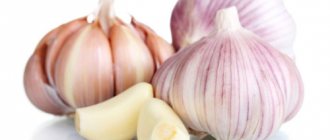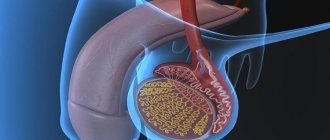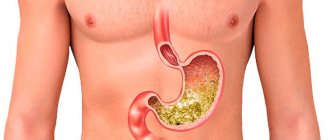Rotten meat, the smell of garlic and the taste of urine: Covid survivors talk about strange “flavors”
Parosmia is one of the unpleasant consequences of coronavirus, when a person smells distorted odors or even experiences olfactory hallucinations – phantosmia. Some people who have recovered also have problems with taste: meat resembles garlic, and expensive wine resembles urine. Residents of the Moscow region told RIAMO how they suffer due to the loss of familiar smells and tastes after illness.
Svetlana, beauty center employee:
© RIAMO, Alexander Manzyuk
“I became infected with coronavirus before the New Year and spent the holiday alone under a blanket. The illness progressed for about two and a half weeks according to the standard pattern: severe cough, high fever, weakness.
Later there was a complete loss of tastes and smells. I was very worried that this might not go away and anxiously awaited the end of the illness. After recovery, I breathed a sigh of relief - my feelings began to return, but then problems began.
One evening I decided to relax and drink my favorite sparkling wine after a hard day.
I love expensive Italian prosecco. But when the wine tasted like urine, I had to throw it away.
At first I thought it was a bad bottle, but the same thing happened with the second one. But the hated domestically produced wines seemed like nectar: the chemical taste that I had felt in them before disappeared.
The next strange thing happened when cleaning the bathroom - I didn’t feel the bleach at all and thought that the cleaning product had been made odorless, but then, while cleaning the office with a product of a different brand, this happened again. At the same time, visitors complained several times about the strong smell.
Until now the situation has not improved. My health in general has deteriorated, so I go to doctors and do a full examination. I’ve already spent about 30 thousand rubles on this.”
How to restore your sense of smell after coronavirus>>
Sergey, private entrepreneur:
© pixabay
“The thing that bothered me the most during my illness was the loss of smell, while some semblance of taste remained. It is very difficult to be in such a state: as if life has lost its colors, and you are in a vacuum.
After recovery, for another three months I sucked air into my nostrils and felt empty, then some of the smells began to return. But another problem was added.
A couple of weeks ago, an incomprehensible stench appeared that comes from most foods: coffee, cucumbers, meat, even from the armpits and much more.
The smell is the same, not sharp, but unpleasant - I just can’t find an association for it. They write on the Internet that for some people, for example, chocolate smells like carrion, but I smell something I’ve never smelled before. I can’t smell delicious-smelling perfumes or cosmetics, and previously loved products give off a stench.
To force myself to eat at least something, I set the intention and tell myself that all the products are fresh and I personally saw how my wife prepared lunch for me from them.
This war with the sense of smell has already tired me.”
How to take a coronavirus test for free in Moscow>>
Daria, editor:
© pixabay
“I had a fairly mild form of the virus, and the smells and tastes partially disappeared. Some time after the test came back negative, my tongue began to feel as if it were being burned, and the taste of food began to seem distant.
I also smelled yeast under my nose for several days, as if I was eating dough all the time.
At some point during my illness, I wanted to eat a sandwich with sausage and realized that it had a garlic flavor. Later it turned out that any meat gives me the same taste very strongly. At the same time, I calmly ate the seasoning made from ground garlic, but now I felt as if I was biting from a green arrow - the taste was very bitter and pungent.
I always loved meat and ate it almost every day, but now I can’t. I try it from time to time, but even if the dish contains meat broth, the effect is just as unpleasant.
Even when I just imagine eating meat, I can’t remember its taste.
I feel like my body lacks protein. You have to replace your usual food with stewed or fried vegetables, cereals, and sometimes fish.
To one degree or another, other smells were also distorted. During meals, I sometimes ask people what the product should taste like. Food may be sour, bitter or have a different taste. If something has gone bad, for example milk, I definitely won’t be able to understand it.
The only thing that hasn't changed is sweets. It was delicious even during illness, and remains so to this day.
True, it gets better over time - it seems to me that the sensations are restored. Recently I tried to bite into meat and the real meat taste began to break through the taste of garlic - this is already progress. I hope that in a couple of weeks the tastes will return completely.”
Coronavirus etiquette: how to safely say hello and ask others to wear a mask>>
Oksana, teacher:
© pixabay
“The problem with the change in smell is terrible for me.
Eggs, chicken, some vegetables, even flowers - everything stinks of rotten meat. I don’t live, but exist – it’s difficult for me to cook and eat normally.
At the same time, my coronavirus progressed without complications.
Even my usual leisure time has changed. I used to enjoy going to restaurants and bars with friends, but now, upon entering, some of the smells from the kitchen feel disgusting. As a result, no normal food, no entertainment.
When I first encountered the change in smells, I fell into a kind of despair, which turned into resignation - after living like this for a month, I got used to it a little. Now I eat empty cereals without spices and other light foods that can be called as neutral as possible.
I don’t know whether it’s worth seeing a doctor in such a situation, because I doubt whether he will help at all.”
Masks, gloves and antiseptics: how to choose the best ones to protect against coronavirus>>
Alena, clinic employee:
© pixabay
“I got sick during the first wave, when less was known about the virus than it is now. At first I developed a temperature of 37, which lasted a week. Usually I recover quickly, the fever goes away literally within a day, so I decided to take a test - it turned out that I had coronavirus.
Later, all my smells disappeared, and there were a lot of antibodies in my blood.
For three months I felt practically nothing, then my sense of smell returned sharply, but soon disappeared again, and this happened several times - my nose seemed to be acting up.
Before the sense of smell fully returned, a strange smell was present in the nose for some time. Literally everything was given to them - even the people around smelled of burnt rubber. Those around were only surprised and said that they did not feel anything like that. This scared me, because back then we were less likely to encounter changes in smells.
Now my sense of smell has almost been restored, except that my favorite cilantro has lost its former aroma - now it smells unpleasant and pungent.”
A year with coronavirus: the main memes about the pandemic>>
Tamara Girdaladze, general practitioner:
© pixabay
“Parosmia as a consequence of coronavirus has been little studied to date, and the exact mechanism of its occurrence is unknown.
Many survivors are accompanied by other disorders, for example, anosmia - complete loss of smell, hyposmia - decreased sense of smell, and phantosmia - the sensation of a smell that is not really there. The taste may also change.
Damage to the central nervous system and olfactory bulbs is primarily to blame for the disorder. According to one study, such complaints are more likely to be made by people with stronger immune systems who have had a mild form of coronavirus. Personally, mostly people under 40 came to me.
Impairments and distortions of the sense of smell can indeed occur after the disappearance of other symptoms and last from several days to several months after Covid - to some extent this is an individual factor. So, one of my patients had no sense of smell for six months.
There are no products for restoring the sense of smell with proven effectiveness yet. However, it is better not to self-medicate, but to consult a doctor. In some cases, we prescribed B vitamins, which help restore nerve endings.”
Vaccination and its “special effects”: how a RIAMO employee was vaccinated against coronavirus>>
We fight toxicosis
get more rest
Very often in the first trimester, the expectant mother feels weak, drowsy, she wants to lie down to rest, and sometimes she simply does not have the strength to move. This, of course, is not toxicosis, but if such sensations arise, then they need to be indulged so as not to inadvertently provoke another attack of nausea. Get plenty of rest and do not make any sudden movements, because even if you simply fail to get up from a chair, you can provoke an attack of nausea.
Sleep with the windows open: the air in the bedroom should be fresh and cool. Go to bed on time, do not sit past midnight in front of the TV or at the computer, eliminate all irritating factors: an uncomfortable mattress, blanket, pillow, hard bed linen - lack of sleep can cause morning sickness.
eat right
Eat small meals, 5-6 times a day, or even more often, and always in small portions. When you wake up, do not immediately get out of bed. One of the most effective methods against toxicosis is breakfast in bed. In the evening, place crackers, yogurt or any product that you tolerate well next to your bed. Eat it before you get up, and then lie down for a while. Most likely, morning sickness will either not appear at all or will be very mild.
Usually, with toxicosis, it is not recommended to eat fatty, smoked, salty, pickled foods, or drink soda (the usual set of food hazards). But it is likely that some not very healthy product will now be tolerated well, and some healthy food, on the contrary, will cause nausea. “Pregnant whims” - cake with herring or pineapples at night - these are requests from the body that it needs one or another component in food. For example, the desire to chew chalk is a sign of calcium deficiency. So eat what you like and what you want, within reason, of course. And if you don’t want something, even if this product is extremely healthy and necessary, don’t eat it. If you feel nauseous from some dish, it means your body is signaling to you: I don’t need this now!
drink more often
Toxicosis may not be limited to nausea; some may also experience vomiting. This means fluid is lost. Therefore, drink more often between meals: a sip or two of mineral water or tea with lemon will help cope with nausea and replenish lost fluid. But you need to drink in small sips. Also, you should not wash down your food and you should give up soups for a while - a large amount of what you drink and eat, on the contrary, only provokes nausea and vomiting.
breathe fresh air
Walking in the fresh air is beneficial for everyone, but especially for toxicosis. Firstly, when walking, the blood of the expectant mother and baby is saturated with oxygen, which is very important for health, and secondly, walking calms the nervous system. All together this helps reduce the unpleasant symptoms of toxicosis. You need to walk at least two hours a day - but not just on the street, but in a place where the air is really fresh: in a forest, park, square, and best of all, outside the city. Before you go out, think about your route: go away from polluted highways, street cafes, food stalls and other “fragrant” places.
eliminate fragrances
Taste and olfactory preferences change in the first trimester. Now even your favorite perfume can cause nausea, headaches and an allergic reaction. Therefore, put away all aromatic cosmetics that irritate you: perfumes, deodorants, creams, etc. Both my husband and loved ones will have to stop using my favorite perfume. Explain to others that this is not a whim, but a temporary measure, and very soon everything will return to normal.
And don’t worry that now you will be left without your usual beauty products. Both the cosmetic store and the pharmacy are full of different creams, tonics, shampoos without fragrances or with minimal odor.
work with yourself
Psychologists believe that the cause of toxicosis is not only hormonal changes, but also the psychological state of the woman. The more a woman worries, the more worries and fears she has, the more pronounced toxicosis can be. Ideally, it is better to limit yourself from any stress during pregnancy. Of course, it is not always possible to eliminate nervous work or the crush on public transport, but watching less TV, not reading negative news and various pregnant “horror stories” on the Internet, not reacting to minor or even major everyday troubles is within the power of everyone. Therefore, if you are worried about toxicosis, create your own comfortable world during pregnancy. If you can’t cope on your own, contact specialists (psychologists). Toxicosis can really be treated well with psychotherapy. The main thing is that the expectant mother should want to get rid of her own anxiety.
No matter how unpleasant toxicosis is, it does not last forever. You need to be patient until the beginning or (less often) middle of the second trimester. And very soon all the unpleasant symptoms of toxicosis will be a thing of the past!










